European projects
IFV has participated in the following European projects:
Projects in which IFV has participated
VITISAD - Sustainable viticultural strategies and practices for adapting to climate change

Project Title :
Sustainable viticultural strategies and practices for adapting to climate change
Funding : INTERREG POCTEFA
Duration : 2019-2022
Coordination : NEIKER Instituto Vasco de Investigación y Desarrollo Agrario
Status IFV: Partner
Summary :
The project aims to promote adaptation to climate change and the prevention and management of climate risks in the vineyards of the western part of the POCTEFA area (French and Spanish Pyrenees).
Different practices will be evaluated not only through classical agronomic trials but also through demonstration plots with winegrowers, transferring the results both to the wine sector and to administrative authorities for possible inclusion in future strategies and action programmes. The aim is to demonstrate and implement techniques that make it possible to maintain the quality of wines under the conditions of climate change, while avoiding the environmental risks that future climatic conditions could entail, such as soil erosion.
The cross-border dimension of this cooperation project is strong: results obtained in one region can be transferred to other regions.
Together with the main results of the project, a practical guide for sustainable crop management will be published, adapting it to a climate change scenario in which the soil, the health of the vineyard and the most suitable planting material will be taken into account. Winegrowers, wineries and public administrations will benefit from these results.
IFV’s will implement field experimentations in its vineyard and participate to communication and dissemination activities.
The project is coordinated by NEIKER (Instituto Vasco de Investigación y Desarrollo Agrario) situated in Euskadi region, with the participation of other Spanish partners: the government of Rioja (Dirección General de Agricultura y Ganadería del Gobierno de La Rioja), Dirección General de Desarrollo Rural,Agricultura y Ganadería, de Gobierno de Navarra and French partners : Chambre d’Agriculture des Pyrénées Atlantiques and the French Wine and Vine Institute (IFV).
Contact :
Thierry Dufourcq
AGROCOQUILLES - To study the effectiveness of shellfish by-products in vineyards and agriculture, and their bioavailability as a source of calcium for livestock.
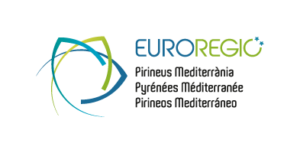
Funding : Eurorégion Pyrénées Méditerranée
Duration : from may 2021 to september 2022
Coordination : Providentiel Coquillages
Status IFV : Partner
Summary :
To study the effectiveness of shellfish by-products in vineyards and agriculture, and their bioavailability as a source of calcium for livestock. In the context of climate change, the Agrocoquilles project, led by the Providentiel shellfish (Toulouse), the French Institute of vine and wine (Tarn), the consulting company Agrossessor (Girona) and the association of organic farmers of Mallorca (APAEMA, Mallorca), aims to study the impact of the use of oyster shells in the agricultural sector of the Mediterranean Euroregion, to share among its 4 partners the experiences and results acquired throughout the project and disseminate the results in universities, institutions and agricultural sectors, in particular organic agriculture.
Context and issues : scientific study on the value of local promotion of seafood by-products in the agricultural sector, a circular economy approach. In agriculture, the oyster shell amendment is mainly used as a pH corrector. But there are other properties, such as increasing the biological activity of soils, the ventilation of compacted soils, the supply of minerals and trace elements, increased resistance of plants to diseases and the prevention of hypocalcemia which has been observed but not found in studies.
IFV’s will participate in the field trials in the vineyard aiming to :
- Analyze the efficiency of an oyster schell mulch to prevent weeds
- Analyse the possibility of using oyster schell product as a soil amendment
More information :
Contact IFV : Fanny Prezman
NEFERTITI - Networking European Farms to Enhance Cross Fertilisation and Innovation Uptake through Demonstration
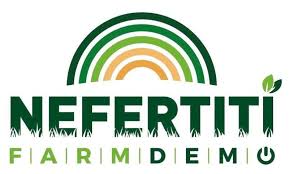
Project Title : Networking European Farms to Enhance Cross Fertilisation and Innovation Uptake through Demonstration
Funding : H2020 –RUR 12 ( Rural Renaissance – Fostering innovation and business opportunities)
Duration : January 2018-january 2022
Coordination : ACTA
Status IFV : Partner (Third party of ACTA)
Summary :
NEFERTITI is a unique project that establishes 10 thematic networks bringing together regional clusters (hubs) of demo-activities and the involved actors. The project focuses on creating added value from the interactive exchange of knowledge and technical content among farmers and AKIS actors (Agricultural Knowledge and Innovation Systems) in order to: o boost innovation; o improve peer to peer learning and o improve network connectivity between farming actors over Europe.
A monitoring and learning program supports the systematic extraction of lessons learnt, lessons to be shared with wide audiences including AKIS actors and public authorities. A web based platform unlocks the experience, actors, demonstration details and the related content for wide spread sharing, enhanced by dedicated production of relevant material in each language of the project ’partner The overall objective of NEFERTITI is to establish an EU-wide highly connected network of well-specified demonstration and pilot farms, which is designed to enhance thematic knowledge exchanges, cross fertilisation among actors and efficient innovation uptake in the farming sector through peer-to-peer demonstration of techniques. To achieve this goal, project will achieve the following objectives: At the support level: o Developing Dynamic Action Plans by identifying the needs of demonstration actors and networks in terms of knowledge and know-how for networks ‘activities taking into account the diversity of EU AKIS. o Supporting cycles of demo-activities and peer-to-peer learning in the regional hubs that will be established involving all relevant AKIS actors. OB is aimed at learning by doing on how to improve uptake of knowledge among farmers and improve science-practice interactions; o Establishing a web-based platform including knowledge reservoirs related to demo-activities including ready-to-use knowledge from other national, EU and EIP related projects organised by themes and sectors. At the coordination level: o Establishing and sustaining interactive thematic networks at regional, national and EU levels by sectors and themes (and with the EIP related projects/landscape) to boost knowledge exchanges and cross fertilisation; o Fostering the learning process of all actors involved in demo-activitiesthroughout the networks to identify best practices for demonstrations and interactivity between demonstrations on similar themes over Europe; o Improving the policy dialogue and networking the regional European Structural Investment Funds (ESIF) managing authorities to ensure the network sustainability; o Promoting effective use of demo-and network activities by communicating and disseminating the practical oriented outcomes adapted at local level. ACTA, Association de Coordination Technique Agricole (France) will lead the NEFERTITI project where 25 partners from Academia, Farmers’ association, Research center, extension services from across Europe will work together on this 4-year extensive project. IFV’s role is to coordinate a thematic network on “pesticide use reduction in the production of grapes, fruits and vegetables”.
Contact
Fanny Prezman
Youtube presentation
To watch the video, click here
Website
https://nefertiti-h2020.eu/
EURAKNOS - Connecting Thematic Networks as Knowledge Reservoirs: towards a European Agricultural Knowledge Innovation Open Source System
Project Title : Connecting Thematic Networks as Knowledge Reservoirs: towards a European Agricultural Knowledge Innovation Open Source System
Funding : H2020 RUR-15
Duration : January 2019- December 2020
Coordination : University of Ghent
Status IFV : Partner (Third party of ACTA)
Summary : EURAKNOS aims to boost the compilation of knowledge ready for practice by intensifying interaction between various agri-food or forestry networks thereby maximising outputs for practitioners.
The project focuses on widening existing thematic network outputs in an interactive way, both content-wise and in terms of geographical coverage, and avoiding duplication with the existing networks. Cross-fertilisation will be organised among countries, regions and production systems. EURAKNOS will tackle the data management with a view to ensure sustainability of these knowledge networks and maximise their outputs for end-users. To this end, EURAKNOS aims to stimulate the exchange of existing approaches, methodologies and tools between the different multi-actor thematic networks and EIP-Agri operational groups and search for a harmonised approach.
This project will also explore the end users’ needs and possibilities of setting-up a European agricultural knowledge and innovation open source system that may connect all Thematic Networks.
IFV’s brings its experience of the thematic network Winetwork, dedicated to compiling scientific and practical knowledge on two main diseases in the vineyard (flavescence dorée and grape trunk diseases).
Contact
Eric Serrano
Website
https://www.euraknos.eu/
INNOSETA - Accelerating Innovative practices for Spraying Equipment, Technologies and Applications in European agriculture through the mobilization of Agricultural Knowledge and Innovation Systems
![]()
Project Title : Accelerating Innovative practices for Spraying Equipment, Technologies and Applications in European agriculture through the mobilization of Agricultural Knowledge and Innovation Systems
Funding : H2020
Duration : 2018-2020
Coordination : Universitat Politecnica de Catalunya (Agricultural Machinery Unit)
Status IFV : Partner
Summary :
The main objective of INNOSETA is to set up an Innovative self-sustainable Thematic Network on Spraying Equipment, Training and Advising (SETA) to contribute in closing the gap between the available novel high-end crop protection solutions either commercial or from applicable research results with the everyday European agricultural practices by promoting effective exchange of novel ideas and information between research, industry, extension and the farming community so that existing research and commercial solutions can be widely communicated, while capturing grassroots level needs and innovative ideas from the farming community.
INNOSETA focuses on :
- Synthesizing research results and industrial products available on the market on spraying equipment, training and advising (SETA).
- Assessing farmers’ needs, innovative ideas and interests of best practices for spraying technologies and diffusion of these innovations within the social systems
- Generating interactive and multi-actor innovation at regional level, supporting cross-border collaboration and ensuring the sustainability and links of the interregional multi-actor network on SETA with the EIP-AGRI and other EU wide initiatives. In this WP, recommendations, practice abstract required by the EIP-AGRI and policy briefs on SETA will be produced.
- Setting up the “SETA Platform” supporting the creation of a SETA virtual Community
- Conducting interactive dissemination activities
This project involves 14 partners including different academic centers such as l’Institut Français de la Vigne et du Vin (France), the University of Torino (Italy) or the Research Institute for Agriculture, Fisheries and Food (Belgium) and associations such as the European Agricultural Machinery (CEMA), the European Association of Farmers (COPA-COGECA) or the European Crop Protection Association (ECPA). The Spanish farmer association UPA also participates at the national level.
Contact
Sébastien Codis
Website
http://www.innoseta.eu
Leaflet
Read
ADVICLIM - High resolution study of viticultural adaptation and mitigation scenarios

Project Title : High resolution study of viticultural adaptation and mitigation scenarios
Funding : LIFE Environment (LIFE13 ENV/FR/001512)
Duration : 5 years (July 2014 – June 2019)
Coordination : Université Rennes 2/ CNRS
Status IFV : Partner
Summary :
In the current context of climate change, the wine industry is facing multiple challenges, including adapting its practices and reducing greenhouse gas emissions related to its activities.
In response to these challenges, recognising the need to assess climate and its impact on viticulture at the vineyard scale, the LIFE-ADVICLIM project aims to study climate change adaptation and mitigation scenarios for a range of vineyards which represent the climatic diversity of European wine regions.
The LIFE-ADVICLIM project will develop climate change adaptation and mitigation strategies which can be adapted to European wine regions, and demonstrate their application at the vineyard scale. The project’s measurement network and web platform will enable wine producers to assess the impacts of climate change on their plots, simulate adaptation scenarios, and measure the greenhouse gas emissions related to their practices. These technologies are being tested on demonstration sites in five European vineyards regions: Cotnari, Rheingau, Bordeaux, Sussex and Val de Loire, thanks to funding from the European Life programme.
Contact
Sophie Penavayre
Website
http://www.adviclim.eu
NoAW - No Agro-Waste : Innovative approaches to turn agricultural waste into ecological and economic assets

Project Title : No Agro-Waste : Innovative approaches to turn agricultural waste into ecological and economic assets. Funding : H2020- Waste 7 Duration : 2016-2020 Coordination : INRA Status IFV : Partner
Summary :
Driven by a “near zero-waste” society requirement, the goal of NoAW project is to generate innovative efficient approaches to convert growing agricultural waste issues into eco-efficient bio-based products opportunities with direct benefits for both environment, economy and EU consumer. To achieve this goal, the NoAW concept relies on developing holistic life cycle thinking able to support environmentally responsible R&D innovations on agro-waste conversion at different TRLs, in the light of regional and seasonal specificities, not forgetting risks emerging from circular management of agro-wastes (e.g.contaminants accumulation).
By involving all agriculture chain stakeholders in a territorial perspective, the project will: • develop innovative eco-design and hybrid assessment tools of circular agro-waste management strategies and address related gap of knowledge and data via extensive exchange through the Knowledge exchange Stakeholders Platform, • develop breakthrough knowledge on agro-waste molecular complexity and heterogeneity in order to upgrade the most widespread mature conversion technology (anaerobic digestion) and to synergistically eco-design robust cascading processes to fully convert agro-waste into a set of high added value bio-energy, bio-fertilizers and bio-chemicals and building blocks, able to substitute a significant range of non-renewable equivalents, with favourable air, water and soil impacts and • get insights of the complexity of potentially new, cross-sectors, business clusters in order to fast track NoAW strategies toward the field and develop new business concepts and stakeholders platform for cross-chain valorisation of agro-waste on a territorial and seasonal basis.
Contact Valérie Lempereur
Website http://noaw2020.eu
ECOFASS-VIN - Innovative low impact distribution system for sparkling wine

Project Title : Innovative low impact distribution system for sparkling wine
Funding : INTERREG FRANCE-SWITZERLAND
Duration : January 2017-july 2019
Coordination : CG INDUSTRY
Status IFV : Partner
Summary :
Ecofass-Vin is a collaborative project for developing a innovative solution for storing and distributing local and regional wines. The project is coordinated by a French SME (CG Industry), and 5 partners are contributing (3 swiss, 2 French) and cover the whole value chain to develop and distribute this solution. The Swiss vineyard covers 14820 hectares mainly constituted by Chasselas grape cultivated by small wineries. This old cultivar is emblematic of the regions’ terroir. The Swiss Chasselas wine is sparking and needs adapted conditioning systems. CGindustry, a company specialized in plastic containers and food industry, who has developed an innovative conditioning system for the beer industry (“Ecofass”) wants to adapt this system to the wine industry. The idea is to provide a sustainable and environmentally friendly conditioning system. The system aims to preserve the quality of the wines and use less sulfites. Under the supervision of the Changins School and the “Ecole Hotelière de Lausanne” in Switzerland and with the environmental evaluation expertise of the French Wine and Vine Institute (IFV), CG industry wants to develop, with BIBARIUM company specialised in Bag-in-boxes conditionning, this promising solution to reduce distribution costs and environmental impacts. IFV’s role is to improve and validate the ecobalance of the whole production and distribution chain, and transfer the results to the French Savoie and Jura vineyards

Contact
Sophie Penavayre
WETWINE - Transnational cooperation project for the promoting the conservation and protection of the natural heritage in the wine sector in the South West of Europe.

Project Title : Transnational cooperation project for the promoting the conservation and protection of the natural heritage in the wine sector in the South West of Europe.
Funding : INTERREG SUDOE
Duration : 01/07/2016 – 30/06/2019
Coordination : INGACAL (Spain)
Status IFV : Partner
Summary :
Water consumption for cleaning wineries and treating winery effluents is an important issue. Vineyards require moderate use of fertilisers with adequate input of organic matter, nitrogen, phosphorus and oligoelements. The use of mineral fertilisers represents a high cost for vine growers, along with their potential impact on the soil and water quality.
WETWINE aims to help to solve effluent treatment in wine industries, through an innovative pilot, combining anaerobic digestion (methanisation) with planted filters for effluent treatment. The objective is to promote the valorisation and use of the territories’ resources and recycle effluents as a fertilizer in order to reduce the impact of the wine production on the natural environment.
The expected impacts of the project are :
- Valorising winery effluents and limiting the emissions and contaminations of soil and water (valorization of 90% of effluents)
- The WETWINE system and the fertiliser obtained will reduce 90% of the impact of the wineries in the SUDOE territory
- Direct transfer of the results to the main wine production areas of the SUDOE zone (ie Rioja, Douro, Rias Baixas, Pays d’Oc).
Although the characteristics of wine effluents vary from a winery to another and depend on their activity and type of production, a common solution for treating effluents makes sense. It will be necessary to adapt the parameters of conception and functioning to each winery. The fertilizer obtained will also depend on the activity of the winery. In this sense, transnational cooperation will be necessary to adapt a solution to a common problem to each specific situation.
Contact
Laure Gontier
Thierry Dufourcq
Website
http://wetwine.eu/
EUCLID - EU-CHINA Lever for IPM Demonstration

Project Title : EU-CHINA Lever for IPM Demonstration
Funding : H2020 – SFS3b
Duration : 2015-2019
Coordination : INRA
Status IFV : Partner (Third party of ACTA)
Summary :
EUCLID is a four-year Research and Innovation Action funded by the European Commission under Horizon 2020.
The overall objective is to secure food production for the increasing worldwide population while developing sustainable production methodologies to fight pests with an Integrated Pest Management approach (IPM), to be used in European and Chinese agriculture.
EUCLID research activity aims at developing more sustainable pest management methods in Europe and China in order to reduce the negative effects of pesticides on human health and the environment, to reduce economic losses in agriculture, and to provide scientific support to EU and China policies.
Tomatoes, leaf vegetables and grapes are the main crops of research, due to their economic relevance in the targeted markets; however, research outcomes will also have an impact on other crops. In addition, the project will consider the entire food product chain from agriculture to the final consumers.
The project is structured in three Research & Development workpackages (WP1, WP2, WP3), one demonstration workpackage (WP4), one workpackage dedicated to dissemination (WP5) and a workpackage devoted to project management (WP6).
The EUCLID project consortium is formed by 18 partners from 7 countries, which have been selected as to integrate in the project different experiences, including universities, research institutions, SMEs, retailers, in order to reach a variety of stakeholders such as farmers, consumers, policy-makers, scientists and entrepreneurs.
Contact
David Lafond
Website
http://www.euclidipm.org
VALOVITIS - Valorising grape varieties from the Pyrenean Piedmont


Project Title : Valorising grape varieties from the Pyrenean Piedmont
Funding : INTERREG POCTEFA
Duration : 2016-2019
Coordination : IFV
Status IFV : Coordinator
Summary :
The wine market is becoming more and more worldwide and more competitive and companies from the wine sector need to innovate to stay in the race. The Pyrenean vineyards have a very high biodiversity and constitute a tremendous heritage.
From the roman times to the Saint Jacques de Compostelle pilgrimages, vineyards in the area of French and Spanish borders in the Pyrenees are very diverse and present a number of varieties.
Although there are numerous conservatories for vine cultivars, this valuable genetic heritage is in danger of being lost.
Some wild varieties only present in some conservatories or ancient vineyards could be revalorised on the market in order to answer specific demands, for high quality wines or bring more complexity to standard wines. Some of these varieties could well be better adapted to climate change.
VALOVITIS proposes several actions :
• Participative inventory of the vine genetic resources in the project’s territory
• Evaluation of their sanitary state and implementation of a conservation plan in existing conservatories
• Evaluation of agronomic, technologic and aromatic properties
• Knowledge transfer to the wine sector, selection sector and nurseries
Website (in French or Spanish)
http://www.valovitis.eu
Contact
Fanny Prezman
INVAPROTECT - Sustainable protection of plants against bioagressors
Project Title : Sustainable protection of plants against bioagressors
Funding : INTERREG RHIN SUPERIEUR
Duration : 2016 -2018
Coordination : LTZ (Germany)
Status IFV : Partner
Summary :
Several invasive species are menacing crops and natural areas in typical orchards and vineyards of the Rhine Superieur. A specific transnational study, from partners on both sides of the Rhine river, considering the different crops and microclimates, will analyse the propagation of these invasive species and will propose to the producers some sustainable protection measures from these pests.
Contact
Eric Meistermann
Website
http://www.ltz-bw.de

PAThOGEN - Transnational training for improving professionals' knowledge on grapevine virus
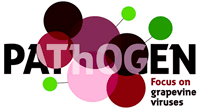
Project Title : Transnational training for improving professionals’ knowledge on grapevine virus
Funding : ERASMUS PLUS
Duration : 2015-2018
Coordination : IFV
Status IFV : Coordinator
Summary :
PAThOGEN aims to improve professional’s knowledge and management of viral diseases in grapevines. This requires a versatile and dynamic training methodology adapted to the subject which will be developed involving e-learning sessions and field training.
The training content about grapevine viruses will be adapted to the specific requirements of participating countries (France, Italy and Spain) and the special characteristics of their viticulture systems. The content of the training will be available through an e-learning platform in English, French, Italian and Spanish. The e-learning platform will also integrate, among other features, assessment tools that allow us to track the progress of trainees and a gallery of images and pictures to illustrate the symptoms of different vineyard viruses.
The PAThOGEN project has special relevance to the ongoing evaluation during the different project actions, both in the implementation phase of the methodology and content of training courses. With this goal in mind an independent evaluation committee (Advisory Board) has been created, whose role will be to advise and validate various issues concerning the development of the tool and an external evaluation process which will evaluate the final version of the PAThOGEN training courses. Finally, the intention is to capitalize and disseminate the training tool and specific content developed, and promote its use among potential end users interested in the formation of both the participating countries and other EU countries.
Contact Anne-Sophie Spilmont Website www.pathogen-project.eu 
SMARTAKIS - Smart farming thematic network : European Agricultural Knowledge and Innovation Systems (AKIS) towards innovation-driven research in Smart Farming Technology

Project Title : Smart farming thematic network : European Agricultural Knowledge and Innovation Systems (AKIS) towards innovation-driven research in Smart Farming Technology
Funding : H2020 – ISIB 02-2015
Duration : 2016-2018
Coordination : Agricultural University of Athens
Status IFV : Partner (Third party of ACTA)
Summary :
Smart-AKIS Network will: • Create and disseminate an inventory of direct applicable solutions from the large stock of research results and commercial applications in Smart Farming in Europe, tailored to the needs of farmers. • Foster the collaboration between the farmer community, extension and advisory services, research and Smart Farming technology providers for the promotion of new innovation projects and processes for the development of new Smart Farming solutions taking into consideration end-users’ needs and interests.
Such approach will take place both at regional level, in 7 Innovation Hubs located in France, Germany, Greece, Netherlands, Serbia, Spain and UK, as well as at a European wide level, as the online Smart Farming Community Platform will facilitate the dissemination of results and interaction between stakeholders, and being compatible with the EIP-AGRI Service Point, will ensure the long term accessibility of results.
Smart AKIS is a so called Thematic Network, a particular format of multi-actor projects promoted by EIP-AGRI and funded by EU’s Horizon 2020 programme. As a Thematic Network on Smart Farming, it will collect existing but insufficiently used scientific knowledge and best practices, making it ready to be used by practitioners through accessible and understandable materials, resources and tools that will enrich the EIP-AGRI database with concrete solutions that farmers can easily implement.
Specific Objectives of the Network are, to: 1. Create an inventory of direct applicable solutions from the large stock of research results and commercial applications. 2. Assess end-user needs and interests, and identify factors influencing adoption taking into account regional/national specificities. 3. Generate multi-actor, innovation-based collaborations among different stakeholders. 4. Set up of an ICT tool for the on-line assessment of the Smart Farming Technology solutions and the crowdsourcing of grassroots-level ideas and needs. 5. Liaise with EIP-AGRI and its structures. Smart AKIS is composed of 13 partners from 8 countries, representing academia and research, farmers associations and cooperatives, advisory and extension services and the agricultural equipment industry.
Contact Christian Debord Website http://www.smart-akis.com
COST ACTION FA 1303 - Sustainable control of grapevine trunk diseases

Project Title : Sustainable control of grapevine trunk diseases
Funding : COST ACTION (FA1303)
Duration : 2013-2017
Coordination : Université Reims Champagne Ardennes (URCA)
Status IFV : Partner
Summary :
The goal of this Action is to develop a network of European expertise to improve understanding of GTD by acquiring knowledge on occurrence of pathogens, vine-pathogen interaction, ecology of wood-inhabiting microorganisms, and to develop new management protocols and biocontrol approaches. This COST Action gathers leading multidisciplinary academic researchers and institutes within Europe to propose new recommendations for the management of GTD and establish Europe as a world leader in GTD research to safeguard vineyards. This knowledge will be promoted in an effort to increase knowledge and awareness of the problem by disseminating information to end-users and authorities in the viticulture sector, and to the general public.
Contact Philippe Larignon Website http://managtd.eu 
WINETWORK - European thematic network on grapevine trunk diseases and Flavescence dorée
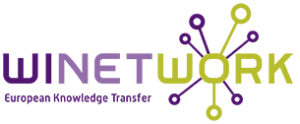
Project Title : European thematic network on grapevine trunk diseases and Flavescence dorée
Funding : H2020 -ISIB -2-2014 (grant agreement N°652601)
Duration : 2014-2017
Coordination : IFV
Status IFV : Coordinator
Summary :
WINETWORK is a European collaborative project for the exchange and transfer of innovative knowledge between European wine-growing regions to increase the productivity and sustainability of the sector. For 3 years, 11 partners of 7 European countries will exchange on their knowledge on two important diseases in vineyard: grapevine trunk diseases and Flavesence dorée. These diseases are well-known in many vineyards and have been extending for several years in different European countries, so it has a big economic importance in the European wine industry. As many winegrowers are testing innovative and sustainable approaches to fight against these diseases, it is very beneficial to capture these ideas and to share them between European countries. The project approach is based on interactions between a network of facilitator agents, regional working groups and two scientific working groups. This participatory approach will allow transferring results from science and practical knowledge to materials adapted to end-users. This network will promote interactions between scientists and practitioners to gather and share experiences and knowledge of different actors from the main wine producing European regions. The project will also identify the most important topics to be addressed after the end of the project, offering important replication opportunities and sustainability of the created network.
WINETWORK project will directly and regularly involve around 180 people to collect, identify and synthesize best practices and research results from all Europe in order to present and share it to the whole community. Contact Eric Serrano Website http://www.winetwork.eu Leaflet Read European scientific working group 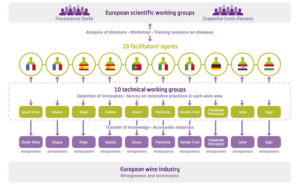
INNOVINE - Combining innovation in vineyard management and genetic for a sustainable European viticulture

Project Title: Combining innovation in vineyard management and genetic for a sustainable European viticulture
Funding: FP7
Duration: 2013-2016
Coordination: INRA
Status IFV: Partner
Summary:
InnoVine is a European collaborative project funded through the Knowledge Based Bio-Economy (KBBE) program, launched in January 2013. During 4 years, it will involve 27 different partners from 7 European countries (Bulgaria, France, Germany, Hungary, Italy, Portugal and Spain).
The wine industry is a major economic sector through the European Union where wine production represented in 2010/2011 about 60% of the whole amount elaborated on the planet. Nowadays, European wine producers must face several key issues and challenges. Within few years, climate change will affect the balance between the area of production and grape varieties and will change the impact of pests and diseases in vineyards. Winegrowers will have to respect the environment while competing with other new producing countries on a more and more globalized market.
In this context, the strategic goal of the InnoVine project is to support the European wine industry by matching consumers’ demands for top quality wines and food safety, citizen’s requests for eco-friendly production methods and winegrowers technical needs in a climate change background.
The project will: 1. At the plant level, improve and design agricultural practices (canopy management, irrigation, fertilization, training systems, pest and disease control…) with the aim of maximizing berry quality, durable resistance to pests and diseases, and adaptation to climate change 2. At the vineyard level, design, develop and test innovative agronomic systems integrating new agricultural practices and taking into account the variability of constraints met by European vineyards grown under a wide range of environments 3. At the breeding level, diversify grapevine varieties with regard to desirable adaptive traits building on tools and knowledge developed through international breeding genomic initiatives.
Contact Eric Serrano Website http://www.innovine.eu/home.html
STABIWINE - Use of biopolymers for sustainable stabilization of quality wines

Project Title : Use of biopolymers for sustainable stabilization of quality wines
Funding : FP7
Duration : 2012-2015
Coordination : Associazione italiana per l’agricoltura biologica
Status IFV : Partner
Summary :
Wine market is very competitive. EU producers need to reduce production costs and increase their sustainability standard while improving the quality of their wine. Wine stability is one of the most important quality parameters.
To avoid formation of cloudiness or precipitates in bottled wines, producers preventively treat it by mean of physical methods or additives. The present practices for tartaric, protein and oxidative stabilization are not suitable for each type of wine and production facility,in particular in small wineries (conventional and organic); moreover, they involve a large use of energy or water, can negatively affect overall wine quality and processing,impose sometimes the use of large quantities of coadjunts or additives, and can be at the original of significant product looses.
Aim of the project is to test effectiveness and suitability in winemaking of biopolymers – on new conception or already used in other sectors – and to make these new practices available for EU SME wine producers.
Addition of biopolymers to wine have shown the ability to inhibit the formation of tartrate crystals, potentially without negative side effects and with no use of energy and water. Other types of biopolymers are known for their ability to absorb proteins in a selective way, and can be adapted to winemaking purpose in order to avoid loss of product and to increase sensorial wine quality. Potential economical, environmental and social benefits are relevant. The project include evaluation of the effect of the treatments on human health and environment, and actions to facilitate the authorization of the new practices by international and European regulatory bodies for conventional and organic winemaking. Extensive dissemination and exploitation activities are foresees to allow fast tak-up of new technologies by SME-AG members and by all European wine producting SMEs.
Contact Philippe Cottereau Website http://www.stabiwine.eu
WINETECH PLUS - Promotion of innovation and transfer of technology in the wine sector
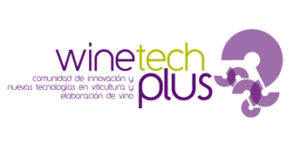
Project Title : Promotion of innovation and transfer of technology in the wine sector
Funding : INTERREG SUDOE
Duration : 2012-2015
Coordination : INGACAL/FEUGA
Status IFV : Partner
Summary :
WINETECH Plus is the continuation of the Winetech project and is a cooperation project in ethe SUDOE area. It aimed at constituting a network of facilitator agents for detecting and enhancing innovation in the wine sector.
Contact Carole Feilhes Website http://winetech-sudoe.eu 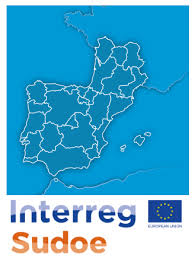
WILDWINE - Multi-strain indigeneous Yeast and Bacterial Starter from "wild ferment" wine production
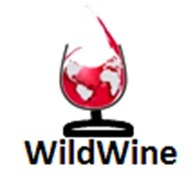
Project Title : Multi-strain indigeneous Yeast and Bacterial Starter from “wild ferment” wine production
Funding : FP7
Duration : 2012-2015
Coordination : Hellenic Agricultural Organisation “DEMETER”(Greece)
Status IFV : Partner
Summary :
Aforetime, wines were produced by the resident grape/winery microbiota. Currently commercial Saccharomyces cerevisiae and Oenococcus oeni starter cultures are widely used to ensure a manageable process. Despite advantages, this may lead to sensory resemblance of wines from diverse origins, whereas exotic starters may fail to take over fermentation. Nowadays, the competitive nature of global wine market urges for the production of premium wines with regional character. Consumers also call for allergen-free wines made according to natural and organic procedures. To this end, the use of indigenous S. cerevisiae or non-Saccharomyces (wild) yeasts is a tool to create wine complexity and authenticity, while selected lactic acid bacteria (LAB) may effectively control malolactic fermentation and thereby eliminate biogenic amines (BA).
The innovative scope of this project is to combine native S. cerevisiae with wild species and native O. oeni with other LAB in the development of peculiar yeast and bacterial blend starters, respectively. These formulations will be carefully designed to fulfill all the essential and desirable winemaking properties to serve as starters in induced wild fermentations for the production of specialty organic or conventional wines. For this purpose, the biodiversity of key EU viticultural areas will be thoroughly screened to identify strains of enological importance as per their phenotypic characters and genetic traits. Their eligibility will be validated in plant-scale fermentations and wines will be evaluated by sensory analysis and consumer acceptance testing. Outcomes will enable (a) ‘wild ferment’ technology in winemaking, (b) production of innovative, safe terroir wines and (c) meeting rules on organic wine production and BA content. By these means, the project will assist the SME-AGs from leading wine producing EU countries (France, Greece, Italy, Spain) to enhance marketing abilities towards a more competitive and sustainable wine industry.
The Project’s targets :
a. Assessment of the indigenous yeast and bacterial diversity involving the isolation of the local yeast and bacterial biodiversity associated with the respective terroirs, the identification of isolates at the species level and the typing of isolates at the strain level with advanced molecular techniques b. Pre-selection of strains with enological potential based on the evaluation of the enological characteristics of yeasts and bacteria by in vitro tests, the assessment of the genetic stability of strains with enological potential through karyotype analysis and the evaluation of the key enological traits of yeasts and bacteria by genetic and molecular analyses. The generation of enological yeast and bacteria culture collections for the respective viticultural zones is also foreseen. c. Evaluation of the performance of pre-selected strains during micro-fermentations on the basis of fermentation kinetics, chemical and sensory characteristics of the finished wines d. Implementation of selected strains and blends as starter cultures in pilot scale wine production. The performance of indigenous yeast blends, bacterial strains and inoculation protocols will be assessed in pilot-scale production of ‘wild-ferment’ wines at the premises of the wineries e. Consumer studies will be implemented for evaluating the market potential for ‘wild-ferment’ terroir wines produced by the selected indigenous yeasts and bacteria f. Exploitation, dissemination and training activities will be carried out to support the exploitation and to protect the Intellectual Property Rights of the project results, to disseminate the knowledge resulting from the project both to the members of the SME-AGs of the consortium and beyond to a wider audience and to train the SME-AGs and their SMEs to facilitate the take-up of the project results.
Contact Philippe Cottereau Website http://www.wildwine.eu 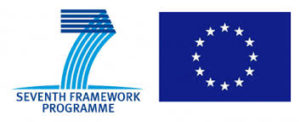
PURE - Innovative Crop Protection for Sustainable Agriculture

Project Title : Innovative Crop Protection for Sustainable Agriculture
Funding : FP7 (contract number 265865)
Duration : 2011-2015
Coordination : INRA
Status IFV : Partner (Third party of ACTA)
Summary :
The overall objective of PURE is to provide practical IPM solutions to reduce dependence on pesticides in selected major farming systems in Europe, thereby contributing to a reduction of the risks to human health and the environment and facilitating the implementation of the pesticides package legislation while ensuring continued food production of sufficient quality.
PURE provided integrated pest management (IPM) solutions and a practical toolbox for their implementation in key European farming systems (annual arable and vegetable, perennial, and protected crops) in which reduction of pesticide use and better control of pests will have major effects.
For each of six selected farming systems, PURE will combine existing methods with new tools and technologies into novel IPM solutions addressing the biological, agronomical and economical diversity in Europe. The process relies on a generic methodological package and on six activities dedicated to the six farming systems, in which a design-assessment-adjustment cycle will be adopted to ensure continuous validation and improvement of the IPM solutions.
Contact David Lafond Website http://www.pure-ipm.eu Leaflet Read 
AD-WINE - High performance anaerobic digesters for the treatment of medium sized wineries effluents

Project Title : High performance anaerobic digesters for the treatment of medium sized wineries effluents
Funding : FP7 Marie Curie Action
Duration : 2011-2015
Coordination : Agua, Energía y Medioambiente Servicios Integrales S.L.U. (AEMA)(Spain)
Status IFV : Partner
Summary :
AD-WINE is a Marie Curie network project, included into the 7th Framework Programme of the European Commission, and has started on December 1, 2011.
It is an interdisciplinary project, with 5 partners made up by an spanish wastewater company leader in the field of wastewater treatment (Agua, Energía y Medio Ambiente Servicios Integrales, AEMA) and four leading non-commercial organizations: Consorzio di Ricerche Applicate Alla Biotecnologia (CRAB) from Italy, Institut Francais De La Vigne et du Vin (IFV) from France, Gottfried Wilhelm Leibniz Universitaet Hannover (LUH) from Germany, and University of Newcastle Upon Tyne (UNEW) from United Kingdom.
Why AD-WINE ?
Nowadays, winery industry treats millions of tons of grape and produces million cubic meters of effluents that, if not treated, cause environmental pollution. In general, the winery effluent mainly contain high organics pollutants charge and other pollutants such us mineral residues, earth, detergents and other toxic contaminants.
The treatment of waste waters from wineries are usually done by aerobic systems, which involves high energy costs because of the needs of oxygen required by this system. Moreover, during the treatment process, an excess of sludge is generated, which must be managed and leads to extra costs. Therefore, to provide a solution to effluents treatment of medium size wineries, it is necessary a profitable depuration system, with low energy costs, high yields in the elimination of pollutants and low waste production. ?
What AD-WINE will get ?
This project aims to develop an innovative anaerobic treatment plant, using high performance digesters able to treats medium sized wineries effluents, since actually anaerobic digestion only is profitable in wineries of big size.
The development of such digesters is presented as a good option to wineries due to its different advantages over aerobic processes: will help to lower the energy and operation cost of the plant, significantly reducing the production of sludge and residues, allowing a better valorisation of by-products and biogas, as well as will allow to comply with limits established by the legislation, and carry out the European objectives in terms of production of renewable energies.
Contact Jöel Rochard Website http://www.adwine-mariecurie.eu 
BIODIVINE - Demonstrating biodiversity in viticulture landscapes

Project Title : Demonstrating biodiversity in viticulture landscapes
Funding : LIFE + 2009
Duration : 15/09/2010 – 31/12/2014
Coordination : IFV
Status IFV : Coordinator
Summary :
The LIFE+ 2009 BioDiVine project is about managing biodiversity in vines through landscape. Prevention of pests, diseases and weeds, as well as preservation of soil from erosion or chemical alterations by overuse, salinisation, acidification, or other chemical soil contamination, may be considered at different hierarchical scales. While the field scale has traditionally received much interest in strategic and applied research, the higher hierarchical scales of landscape have only recently gained consideration.
Interdisciplinary research on issues such as functional biodiversity and landscape connectivity demonstrates that new options arise when systems management are approached from landscape scale.
Over the last decades, many attempts have been made to enhance the quantity and quality of semi-natural elements left in the countryside such as hedges, groves or ground covers.
Most mentioned reasons for the improvement of such habitats are: • To contribute to nature conservation (food, shelter, migration habitats of plants and animals) • To improve environmental quality (buffer strips to prevent pesticides and nutrients contamination) • To promote the aesthetic and legacy values of the countryside.
The LIFE+ 2009 BioDiVine projects is about emphasizing the above motivations, by enlarging its scope at a landscape level; and also suggest management plans using biological struggle through conservation to demonstrate and enforce the reliability of functional biodiversity.
Contact Jöel Rochard Website http://www.biodivine.eu Leaflet Read
ADFIMAX (continuation of DEMYBE project) - Demonstration of innovative filter aid technology to reduce undesirable substances (pesticides and mycotoxins) in beverages such as wine and beer
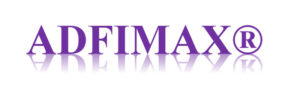
Project Title : Demonstration of innovative filter aid technology to reduce undesirable substances (pesticides and mycotoxins) in beverages such as wine and beer
Funding : FP7 SME
Duration : 2012-2014
Coordination : REALDYME SA
Status IFV : Partner
Summary :
Project Context and Objectives:
ADFIMAX® is demonstrating the production scale up and the commercial potential of a selective filter aid that was the foreground of a previous FP7 program: DEMYBE.
The design and valuation of production process scale-up has been completed. An improved continuous processing unit is under construction and is expected to be fully operational in the autumn. A scale up micronisation unit has also been installed. These progressive developments have allowed the streamlining of the process and the more efficient utilisation of in-house drying and processing facilities. In addition bulk solvent levels have been considerably reduced, diminishing on going operational risk. Project Results: Market application demonstration has successfully taken place on increasingly large quantities of wine (1.000 l) in France. These large scale test (5) did not encounter trouble concerning all major filtration parameters: pressure, speed, volume, quality of filtration, taste, ….. The majority of filtration trials have been carried out using body feed techniques but considerable progress has also been made in the production of effective filter sheet media. Initial test with filter-sheet demonstrated a better than expected selective filtration (removal of OTA and pesticides) so this route to the market is now also confirmed. Regulatory work was achieved by the submission of a full dossier to the French food administration (DGCCRF) and to the German institute Fresenius. This body of work has led to the acceptance of Adfimax materials as a safe food contact agent by German Federal and US Food and Drug Authorities. Potential Impact: The coming months will see a continued expansion of all these programmes resulting in large scale production and even wider evaluation of our product. Central to this work will be the development of an appropriate business model capable of delivering the benefits of the Adfimax® system to the widest possible markets. Clearly this model will focus on the exploitation of filter media but it will also encompass wider potential process enhancements including the exploitation of secondary metabolites and other phyto chemical components already isolated from the principal production stream. Contact Valérie Lempereur Website http://www.adfimax.com 
ECOWINERY - This project aimed to provide methodological tools for eco-building conception of wineries
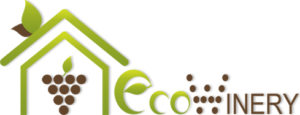
Project Title : ECOWINERY
Funding : Leonardo Da Vinci
Duration : 2012-2014
Coordination : IFV
Status IFV : Coordinator
Summary :
The ECOWINERY project aimed to provide methodological tools for eco-building conception of wineries to growers, winemakers, domain managers, technical consulting, architects or teachers and students in viticulture (initial and continuing training).
IFV has already partially content General training, which was structured around five independent modules:
• Module 1: Energy and regulatory contexts. • Module 2: Architectural approach and eco-design. • Module 3: Energy approach related to construction industries (geothermal and solar energy, heat pump, green walls and rooftops) and thermal recovery. • Module 4: Optimisation of water use in wineries, especially through landscaping, such as reed beds for effluent treatment. • Module 5: Follow-up and evaluation of a winery eco-design project and its environmental impact.
A summary of these five modules has been conducted to define the content of awareness module. However, eco-design issues are specific and different depending on the specifics of each cellar, it is impossible to develop a single general documentation, which would not allow a transfer of effective innovation.
The modules and training tools have therefore been transfered to the local context. Under the project, each partner was responsible for the technical implementation of the training, adapted to the specific characteristics of the basement, ground and environment (topography, water access, outdoor environment) or participants. audience. The modules are now available on the e-learning platform. This 27 months project aimed to educate and train professionals to a new and innovative concept, but also to give all possible keys for interested persons to implement it in viticulture and widely in agriculture (such as breweries, dairies, farming).
Contact Jöel Rochard Website http://www.ecowinery.eu 
TOPPS Prowadis - Train Operators to Promote Best Management Practices and Sustainability

Project Title : Train Operators to Promote Best Management Practices and Sustainability
Funding : ECPA European Crop Protection Agency
Duration : 2012-2014
Coordination : ECPA European Crop Protection Agency
Status IFV : Partner
Summary :
The TOPPS prowadis project started 2012 and ended 2014 and has the aim to reduce Plant Protection Product (PPP) entries into surface water from applications in the field. It builds on the TOPPS – Life project (point sources) and has its focus on aspects related to runoff / erosion and spray drift. The project is executed in 7 countries with the help of 13 local partners and crop protection experts from ECPA.
Project tasks: • Develop diagnosis tools to enable a risk analysis practical and applicable in the field • Develop a toolbox of mitigation measures appropriate for variable farming situations • Recommend Best Management Practices (BMPs) • Discuss BMPs and tools with a broad group of stakeholders in national and European forums to achieve broad acceptance and support • Develop information and training materials for advisers and operators • Organize trainings and demonstrate mitigation measures (pilot areas) • Disseminate materials and key information through media (print, video, pictures, web etc)
Contact Sébastien Codis Website http://www.topps-life.org/topps-prowadis-project.html 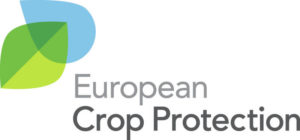
VINECO - Application of Life Cycle Assessment for eco-innovation in wine production
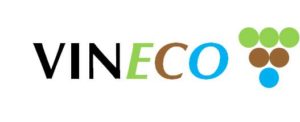
Project Title : Application of Life Cycle Assessment for eco-innovation in wine production
Funding : Eurorregión Pirineos-Mediterráneo
Duration : 2013-2014
Coordination : Cyclus Vitae Solutions, S.L (spain)
Status IFV : Partner
Summary :
VINECO aims to offer guidelines to enterprises and others actors from the wine sector in the Pyrenees-Mediterranean Euroregion sector (Cataluña, Islas Baleares, Midi Pyrenées y Languedoc – Roussillon) in order to make a more efficient use of natural resources, reduce their environmental impact, and enhance competiveness, innovation and internationalisation.
These eco-innovative measures will be addressed, firstly, to the wineries participating in the pilot test. Secondly, these measures will be gathered in a best practices guide for the wine sector industry in this Pyrenees-Mediterranean Euroregion that will help it to reduce the environmental impact of their activities.
Partners of the project have been chosen among different stakeholders within the Pyrenees-Mediterranean Euroregion, being representatives of innovation in the field of research and environmental consulting (Cyclus Vitae Solutions, S.L) , innovation in the wine sector for regional development (Institut Français de la Vigne et du Vin Sud- Ouest) and economic promotion (Menorca Chamber of Commerce).
Technical excellence in sustainability, innovation applied to the wine sector, sustainable economic development and competitiveness make it a trinomial that is key that ensures the success of a project of this nature.
Contact Sophie Penavayre Eric Serrano Website http://www.cyclusvitae.com Article Read 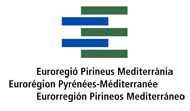
E-Viticlimate - this project aimed at maintaining the richness and diversity of the European vineyard faced with climate change challenges

Project Title : Eviticlimate
Funding : Lifelong learning programme
Duration : 2011-2012
Coordination : IFV
Status IFV : Coordinator
Summary :
The E-VitiClimate project aimed at maintaining the richness and diversity of the European vineyard faced with climate change challenges thanks to an appropriate and innovative training of its viticulture technicians.
It has helped European trainees to acquire and use key knowledge to protect, maintain and exploit in the best conditions the European vineyard and all its related economic activities. It has also contributed to improve the quality and encourage innovations based on ICT in the practices and content of education and professional training in the viticulture sector. Finally, it has contributed to improve the appeal of education and professional training in that sector, by promoting innovative practices and their transfer in all the partner countries.
The main goals of the project were: • To give a boost to a different way of learning in the viticulture sector; • To propose a comprehensive and innovative training on viticulture and climate change that will integrate the cultural and territorial diversity of the European vineyard, through high international cooperation; • To inform all European viticulture mentors and trainers on climate change, its effects on viticulture and adaptation techniques. These goals were be achieved through the: • Adaptation of a training material on climate change, its effects on vineyard and the different techniques and process to adapt the European vineyard to these changes, in the project four languages, cultures, techniques; • Creation of an interactive information platform; • Test, evaluation and adaptation of the training platform in the four project countries; • Organisation of a pilot training and information day in each project country, with viticulture technicians and representative of professional training centres from various institutions; • Dissemination of the training in the European educational system.
The large dissemination of both the interactive platform has allowed a larger understanding of climate change stakes for viticulture, and initiate a deep reappraisal of viticulture techniques. On the long term, through the monitoring of wine producers by technicians that followed the E-VitiClimate training, this project will permit the establishment of sustainable practices in the European vineyard.
Contact Jöel Rochard Website http://www.eviticlimate.eu 
Winenvironment - Environmental savings for vineyard cultivation and wine production
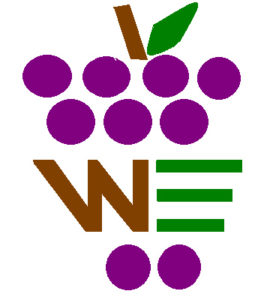
Project Title : Environmental savings for vineyard cultivation and wine production
Funding : Programme Compétitivité et Innovation – Eco-innovation (Contract n°239045)
Duration : 2009-2010
Coordination : IFV
Status IFV : Coordinator
Summary :
The Winenvironment European project comes from the involvement of wine industry stakeholders into sustainable development which aims to a coherent and long-term viable balance between economy, social and environment. Indeed, aware of the wine industry environmental impact and facing the rise in water, energies and wastes treatment’s prices, wine industry actors determined an objective: reducing the wine industry environmental impact while promoting its business competitiveness.
The project demonstrates ecological innovative techniques and an environmental methodology for vine cultivation and wine production which will contribute to the saving of the environment. Indeed, 3 eco-innovations tools are tested in 16 cellars: a specific environmental management system, “Qualenvi”, developed and implemented by the Vignerons Indépendants de France (VIF), a product recovery system technique developed by INOXPA, and an innovative filtration technology by BEGEROW.
The 12 European partners involved in the project chose to evaluate these eco-innovations focusing on 3 environmental criteria: water consumption, energy consumption (electricity, fuel and gas) and wastes production. Besides, a fourth criterion is taken into account: an increase of the competitivity to the winegrowers due to a decrease of their production expenses and an improvement of their management.
Contact Jean-Michel Desseigne Website http://www.winenvironment.eu 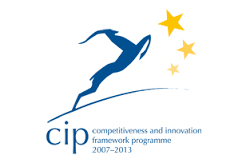
Vinaromas - Aromatic valorization of Pyrenees Central Massif wines

Project Title : Aromatic valorization of Pyrenees Central Massif wines
Funding : INTERREG POCTEFA 2007-2013
Duration : 2009-2011
Coordination : IFV
Status IFV : Coordinator
Summary :
VINAROMAS is a cooperation project bringing together the French Vine and Wine Institute (IFV), applied research center in wine making and viticulture, and the Laboratory of Aroma and Oenology Analysis (LAAE) in Saragossa (Spain).
The project aims to valorize wines from the Pyrenean mountains from cultivars such as Fer Servadou, Gros Manseng, Grenache and Carignon, through: • Identifing molecules from these 4 varieties participating in the wine aromas • Research of aromatic typicity in wines from these varieties • Evaluation of the impact of different wine making techniques on the aromatic potential of these varieties • Creation of specific tools for technicians and oenologist to increase the aromatic quality of wines
Contact Olivier Geoffroy Eric Serrano Website http://www.projet-vinaromas.eu Results http://www.projet-vinaromas.eu 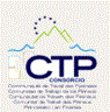
PRACSENS - Remote Sensing Technique for Aeroengine Emission Certification and Monitoring
Project Title : Remote Sensing Technique for Aeroengine Emission Certification and Monitoring
Funding : LEONARDO DA VINCI
Duration : 2004-2007
Coordination : M2A Technologies SARL/ ITV
Status IFV : Partner
Summary :
The PRACSENS project aims to produce a tool for education on new sensors and their applications in industry. It is mainly focused on PRACTICAL effect and aims to favour the measurement in small and medium sized companies. The PRACSENS project gives the possibility to access actual application of innovative technologies in the measurement. This education tool provided the link between the latest theories, progress in scientific research and practical use in industry.
More information Read
NUTRIA - New process for the treatment of waste water from the Food Industry
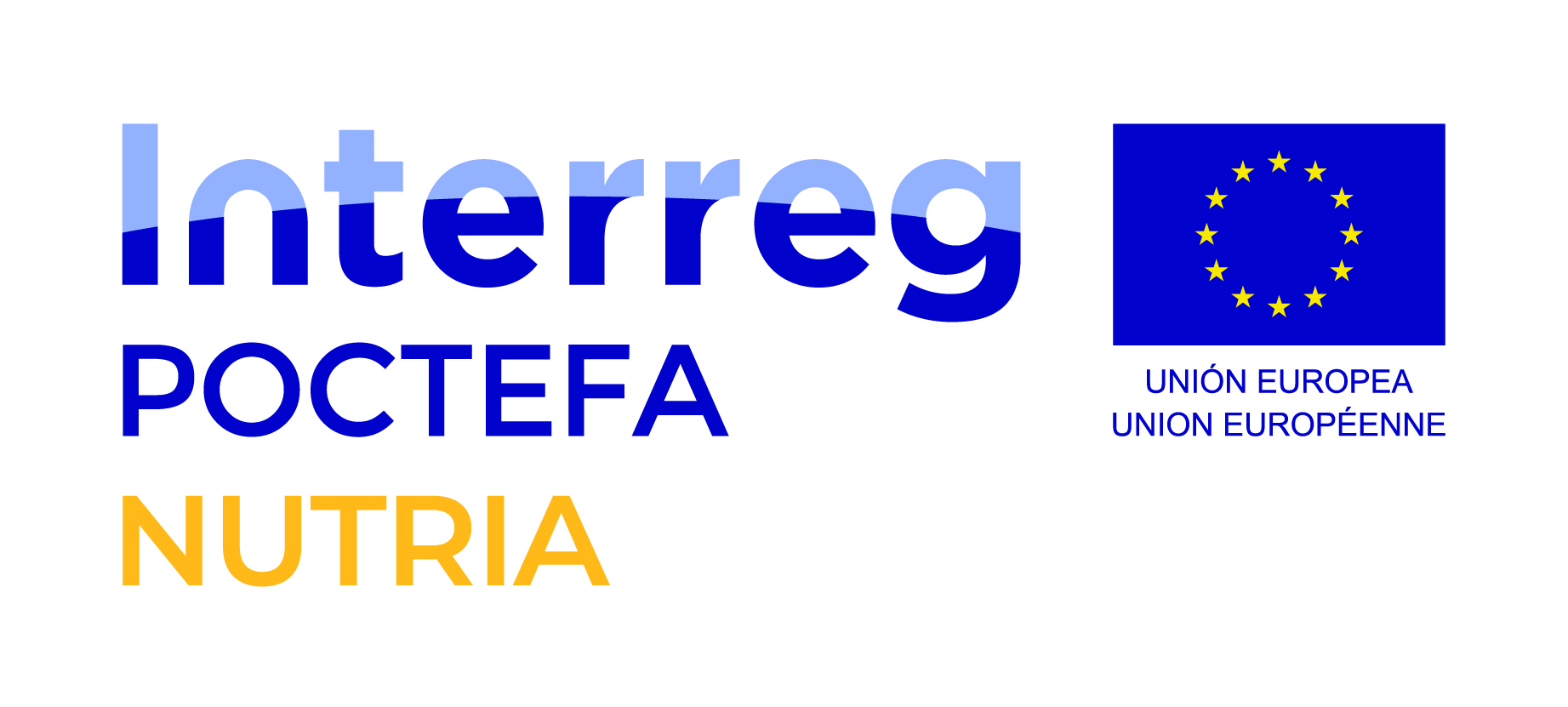
Project Title : New process for the treatment of waste water from the Food Industry
Funding : INTERREG POCTEFA
Duration : 2019-2022
Coordination : Avanzare Innovacion Tecnologica SL
Status IFV: Partner
Summary : NUTRIA project will be devoted to the development of a new tool for waste water treatment, that will be cheap, efficient, environmentally-friendly, and easy-to-apply for the food and agriculture SMEs. NUTRIA will focus, in a first instance, in using technology to diminish the inherent problems in eliminating water contamination in wineries, being the results beneficial for other agricultural companies. The need to deal with the current environmental legislation complicates the continuation and creation of new enterprises, due to the high cost of existent waste water treatment processes. NUTRIA emerges as a solution to this problem, using solar light as energy source and new nanomaterials based on titanium oxide to reduce the toxic materials content by promoting photocatalytic processes in their surface. The project will benefit small wineries and companies of the agricultural sector that will gain access to a new and affordable technology. NUTRIA is coordinated by Avanzare Innovacion Tecnologica SL (Spain) and is implemented with the contribution of University of Rioja (Spain), IFV (France), and Ecocene association (France). IFV’s will contribute to the development of a photocatalyst system to treat winery waste water, will implement a pilot test, and disseminate results to the wine industry.
Website : www.nutria-poctefa.com
Contact : Jean-Michel Desseigne
COPPEREPLACE - Development and implementation of new technologies, products and strategies for reducing use of copper in vines and recovering soil contamination in the Sudoe region
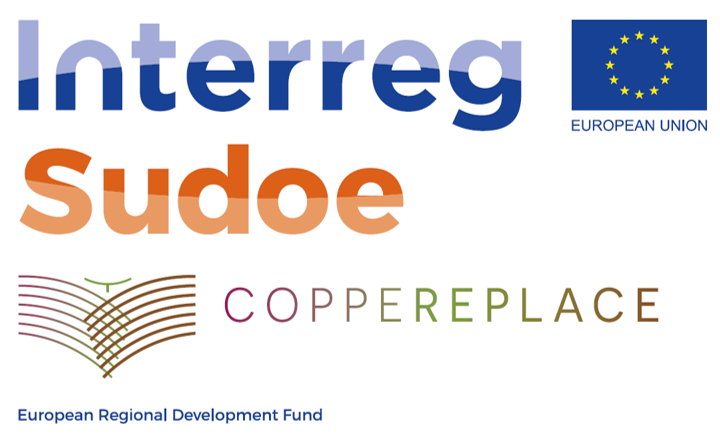
Project Title :
Development and implementation of new technologies, products and strategies for reducing use of copper in vines and recovering soil contamination in the Sudoe region
Funding : INTERREG SUDOE
Duration : 01/11/2020 – 28/02/2023
Coordination : Plataforma Technologica del Vino
Status IFV : Partner
Summary :
COPPEREPLACE is a cooperation project in the South west of Europe area (Sudoe region covering Spain, France and Portugal) aiming to optimize and reduce the use of copper in viticulture and recover soils contaminated by copper. The project will implement new bioproducts and new technologies to reduce the use of copper in vineyards and will identify vulnerable soils and remediation methods adapted to regional particularities. These activities will produce new knowledge that will be disseminated in a specific network.
The consortium is led by the Plateforma Technologica del Vino, a national cluster in Spain grouping major wine R&D organisations and enterprises in the wine industry, in partnership with viticulture R&D organisations (University of Catalunia (UPC – Spain), University of Vigo (Spain), University of Porto (GreenUPorto – Sustainable Agrifood Production Research Center- Portugal), French Wine and Vine Institute, ADVID (Douro R&D association for viticulture in Portugal)), several associations (Syndicat des Vignerons Bio de Nouvelle Aquitaine in France and the Fondation Eurocat in Cataluna), and wine producing companies (Gérard Bertrand in France, Miguel Torres and Jean Leon in Spain, Sogrape in Portugal) and the company Centro de Valorización Ambiental del Norte (CVAN – Spain) specialized in artificial soils (technosoils).
IFV coordinates the activities of testing alternative products to copper in field conditions by defining and implementing experimental protocols for testing new products in France, Spain and Portugal. IFV will test some smart farming technologies. IFV will also participate in the integration of the different solutions and the dissemination of results to the French wine industry.
Website :
HOME – coppereplace.com
Video :
COPPEREPLACE (français) – YouTube
Contact :
Caroline Gouttesoulard
BIOBESTicide - BIO-Based pESTicides production for sustainable agriculture management plan
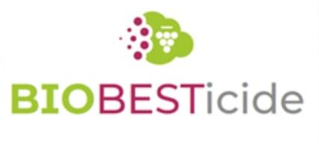
Project Title :
BIO-Based pESTicides production for sustainable agriculture management plan
Funding : IBBI-IA-DEMO – Bio-based Industries Innovation action – Demonstration
Duration : May 2020-April 2023
Coordination : BIOVITIS
Status IFV : Partner
Summary :
The BIOBESTicide project will validate and demonstrate the production of an effective and cost-efficient biopesticide. The demonstration will be based on an innovative bio-based value chain starting from the valorisation of sustainable biomasses, i.e. beet pulp and sugar molasses and will exploit the properties of the oomycete Pythium oligandrum strain I-5180 to increase natural plant defenses, to produce an highly effective and eco-friendly biopesticide solution for vine plants protection.
BIOVITIS, the project coordinator, has developed, at laboratory level (TRL4), an effective method to biocontrol one of the major causes of worldwide vineyards destruction, the Grapevine Trunk Diseases (GTDs). The protection system is based on the oomycete Pythium oligandrum strain I-5180 that, at applied at optimal time and concentration, colonises the root of vines and stimulates the natural plant defenses against GTDs, providing a protection that ranges between 40% and 60%.
BIOBESTicide project will respond to the increasing demands for innovative solutions for crop protection agents, transferring the technology to a DEMO Plant able to produce more than 10 T of a high-quality oomycete-based biopesticide product per year (TRL7).
The BIOBESTicide project will validate the efficiency of the formulated product on vineyards of different geographical areas.
To assure the safety of products under both health and environmental points of view, a full and complete approval dossier for Pythium oligandrum strain I-5180 will be submitted in all the European countries.
A Life Cycle Sustainability Assessment (LCSA) will be conducted to assess the environmental, economic and social impacts of the developed products.
The adoption of the effective and cost-efficient biopesticide will have significant impacts with a potential ROI of 30 % in just 5 years and a total EBITDA of more than € 6,400,00
IFV will implement field experimentations in its experimental vineyards and participate to communication and dissemination activities.
The project is coordinated by Biovitis. The consortium is constituted of : Lamberti Spa (Italy), Institut National De Recherche Pour L’agriculture, L’alimentation Et L’environnement (France), Fundacion Tecnalia Research & Innovation (Spain), Eurion Consulting (France), Ciaotech Srl (Italy), Stowarzyszenie Zachodniopomorski Klaster Chemiczny Zielona Chemia (Poland), Institut Francais De La Vigne Et Du Vin (France), Mercier Freres Sarl (France), Nordzucker Ag (Germany).
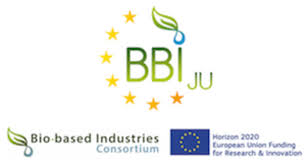
Contact :
Guillaume Delanoue
VINIoT - Developing SME digitalisation and precision viticulture through a network of IoT sensors in the vineyard

Project Title : Developing SME digitalisation and precision viticulture through a network of IoT sensors in the vineyard
Funding : INTERREG SUDOE
Duration : 2019-2023
Coordination : AIMEN (Asociación de Investigación Metalúrgica del Noroeste)
Status IFV: Partner
Summary : The project aims to create a new monitoring system for vineyards in the South West of Europe (SUDOE area) enabling to provide real time information on the grape quality, the fields and vine plant status. The aim is to monitor the hydric and maturity status of the grape or the presence of bioagressors though specific risk alerts to the people in charge of the vineyard (ie technicans) thus enabling them to detect problems earlier, reduce cost production and optimize the harvest and the quality of wine. The monitoring service will result from the combination of two main technologies in the frame of an Internet of Things (IoT) architecture: multispectral imagery and soil sensors. The VINIOT service will be implemented by the project’s partners and the VINIoT hub will put into contact the service providers with users, taking into account their geographical localization, the type of grape produced and other regional specificities. Knowledge produced within the project will be openly shared. IFV’s will implement field experimentation in its vineyard in order to provide reliable references and test the different technologies. IFV will implement field demonstrations in the frame of its “Digiferme” site and participate in the dissemination of results in the wine sector. The project includes partners from France (IFV, INRAE) with two wineries as associated beneficiaries (Vinnovalie and NEOTERA Cave du Grand Narbonne), Portugal (ADVID: Douro wine grower association), and Spain (Government of Rioja, AGACAL Galician food quality association, and FEUGA Gallician technology transfer foundation, along with several associated wineries).
Contact : Carole Feilhès
Website : www.viniot.eu
